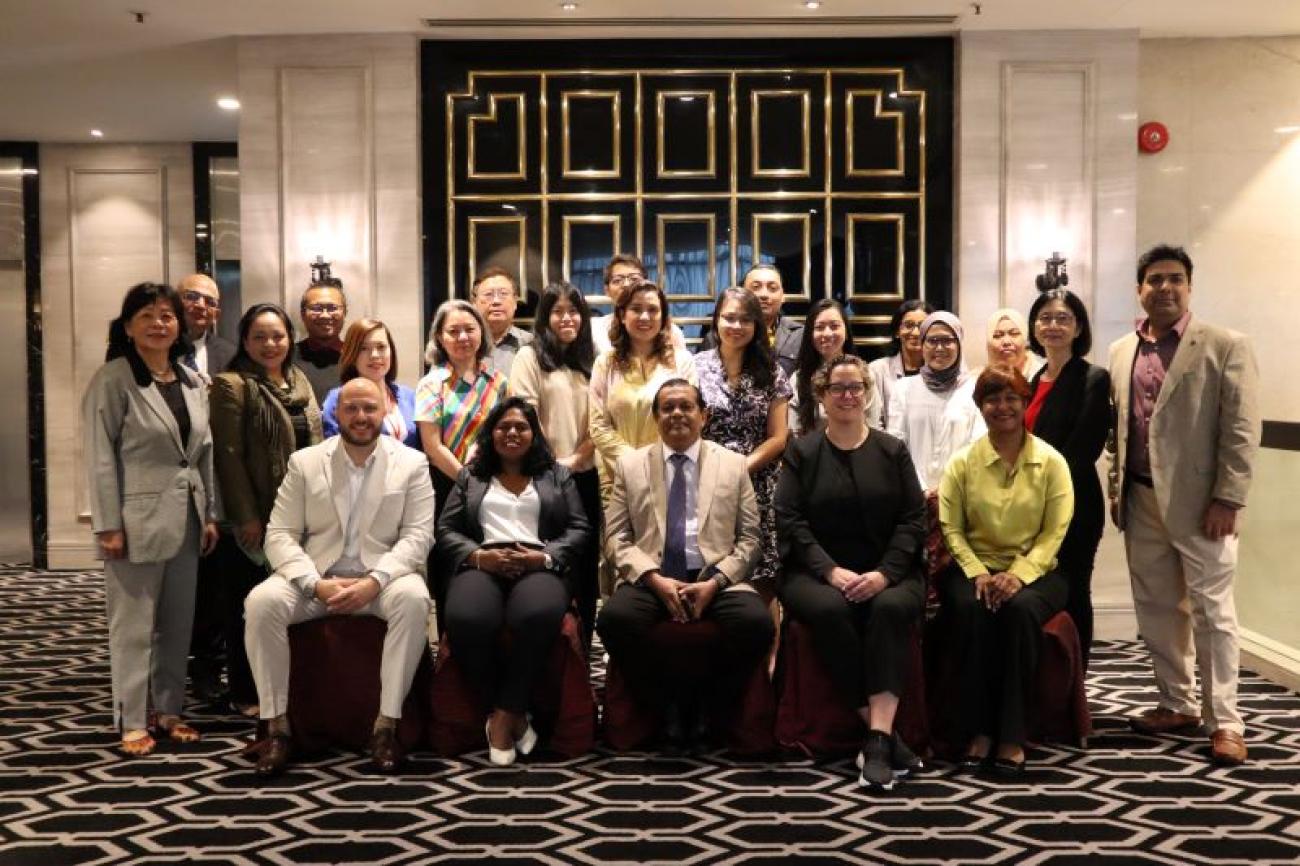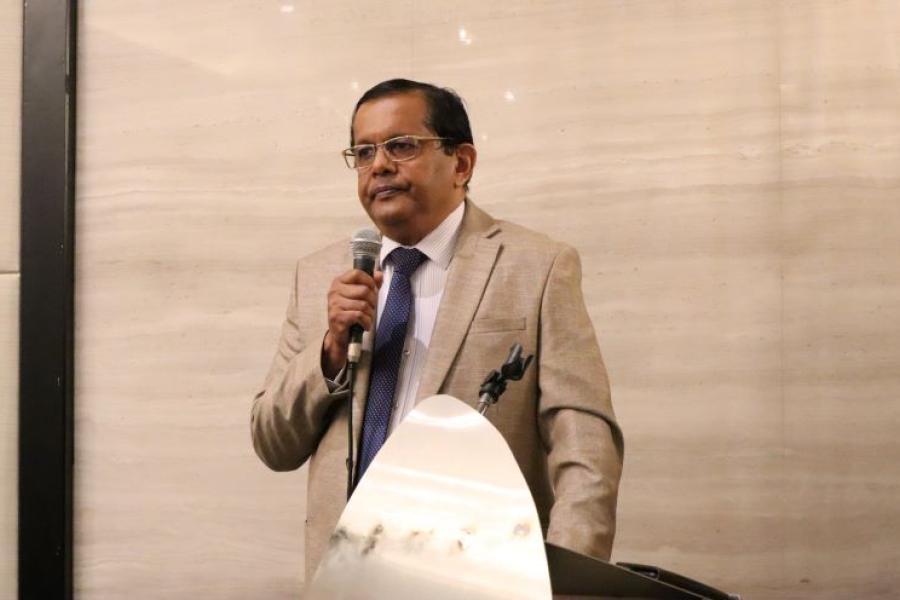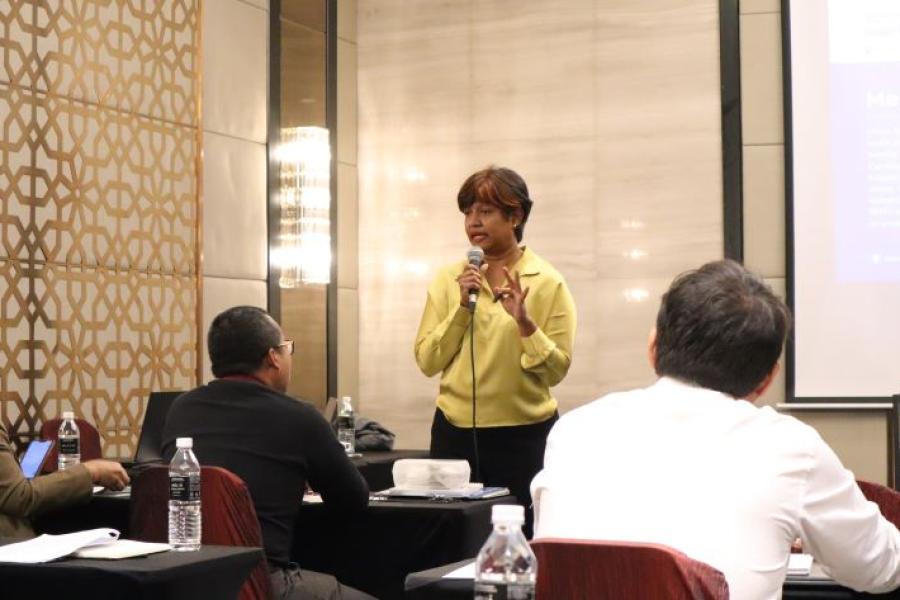Trainings for journalists and content creators on infodemic management and health reporting in Malaysia

Co-organized by WHO in Malaysia, Brunei Darussalam and Singapore and the Asia-Pacific Institute for Broadcast Development (AIBD)
The media plays a critical role in maintaining the health and wellbeing of the public. They are a major link between the evidence and data that comes from the scientific bodies or health authorities and the general population. This link became even more important during the COVID-19 pandemic, with the public being exposed to an incredible amount of information, both factual and false. This avalanche of information inevitably creates confusion among the public and when the content is misleading, it can lead to risk-taking behaviours and negatively impact people’s health.
Journalists, media professionals and content creators play an important part in shaping public perceptions on a specific heath topic. Considering the critical nature of this role, WHO Representative Office in Malaysia, Brunei Darussalam and Singapore partnered with the Asia-Pacific Institute for Broadcast Development (AIBD) to organize a 3-day workshop on “Health reporting strategies and fighting the infodemic”, from 21 to 23 November 2022 in Kuala Lumpur, Malaysia.
Attended by 20 journalists from key national Malaysian media, the training aimed to provide participants with the knowledge and tools required to use data for evidence-based reporting as well as to explore the best approaches for media to deal and manage misinformation on various types of health issues and topics.
The 3-day training was structured as a series of informative presentations with active group discussions and exercises, and regional case studies to provide relevant and contextualized examples to participants. The content focused on overall health journalism principles, techniques for developing and writing health content, challenges and lessons learned in health reporting and programming across various mediums. The training also featured focused sessions on working with multi-source and multi-method data collection and social listening, with an emphasis on specific strategies and tools available that can be integrated into content creation.
While health reporting has always been a part of mainstream media, the COVID-19 pandemic has increased the public's interest in health-related information and the media is now in a strategic position to reshape and strengthen its role as a trusted source of information and elevate the overall health literacy in the country.
“We saw during the pandemic how the infodemic impacted people’s adherence to control measures or uptake of vaccines. It is important for media to provide accurate, verifiable information to the population,” said Dr Rabindra Abeyasinghe, WHO Representative for Malaysia, Brunei Darussalam, and Singapore, during the workshop's opening.

Dr Rabindra encouraged the media to maximize its enormous potential to influence health-related behaviours and tackle health issues such as the ever-growing silent epidemic of noncommunicable diseases, including diabetes and cardiovascular diseases. He also noted that the diversity of media outlets and channels means it is “able to reach all pockets of society, including vulnerable populations, and ensuring that we don’t just minimize harm but improve our collective circumstances and health outcomes”.
Following his statement, K.P Madhu, an experienced health and science writer from India, presented on the fundamentals of health reporting and the principles of health journalism. "Health communication is about making health information accessible, understandable and credible, using reliable sources of information," and advised participants to facilitate this by making sure the right information gets to the right audience through strategic development and communication of their health-related programming.
Building on this and emphasizing the impact of evidence-based and ethical journalism on public health, Djordje Novakovic, a WHO expert on strategic and risk communication, noted that the "media should seek the truth and report it, act independently and be accountable," as open, transparent, and timely communication enables the public to make better decisions about their health and the health of others. He added that "working with trusted sources of information builds credibility and establishes the public's trust in your content," and emphasized that trust is crucial especially when communicating science, technology, and new information on health and medicine.
Dr Rohani Jahis, Head of the Zoonoses Sector, Disease Control Division from the Malaysian Ministry of Health, reinforced the importance of working with trusted sources of information, noting that the ministry and the media must work closely with other strategic partners to share information and reach all communities, reduce anxiety and fear especially in times of crisis and increase overall health literacy.
“From this training, we learnt the importance of prudent health reporting, that makes a big difference in the wellbeing of the public, from communicating health data from the experts to mere information that is consumable by the public,” said Azry Ahmad Mustafa Hadi, a participant of the training from the Department of Broadcasting Malaysia.

With her statement that "media practitioners are the bridge between professionals and the average person", Meera Sivasothy, a Malaysian media expert and broadcaster, well summarized some of the key takeaways from the workshop. The media plays a powerful role in fighting an infodemic and inoculating populations against the mis- and disinformation that can harm the health of communities and erode trust in health authorities.
WHO will continue to work closely with the media to provide information backed by science, evidence, and facts to help the public make informed choices to protect their health, prevent illness and save lives.
This training was made possible with the support of the Government of Japan.



